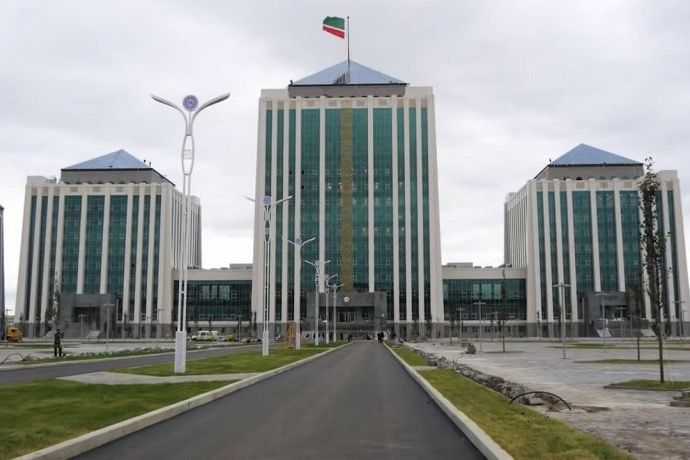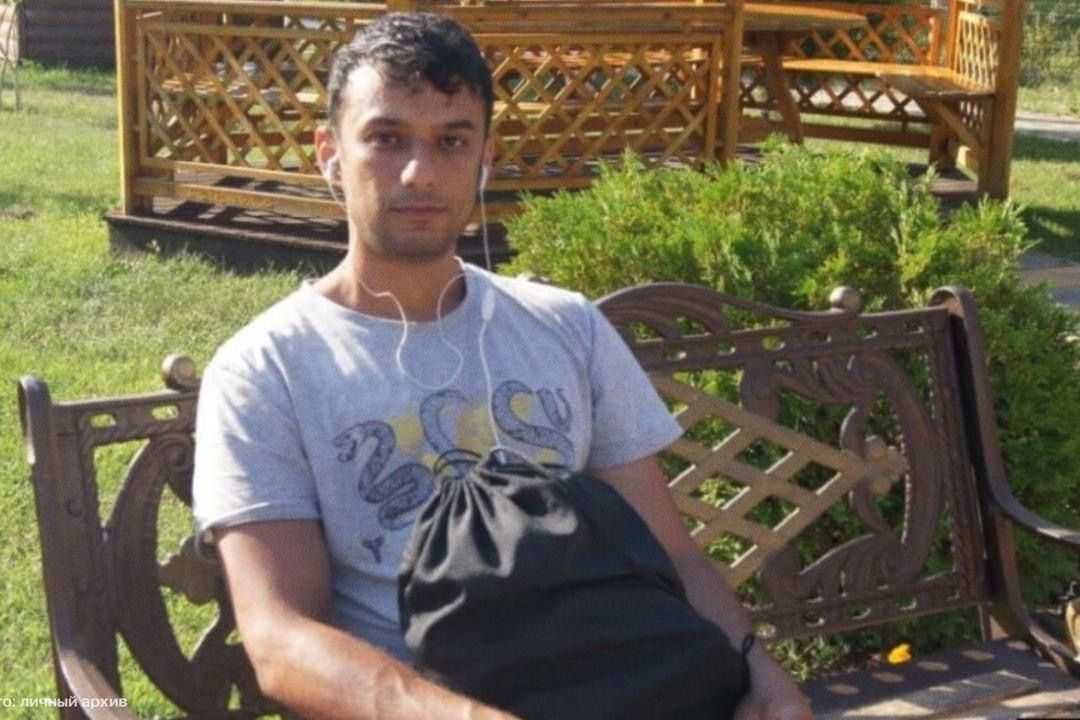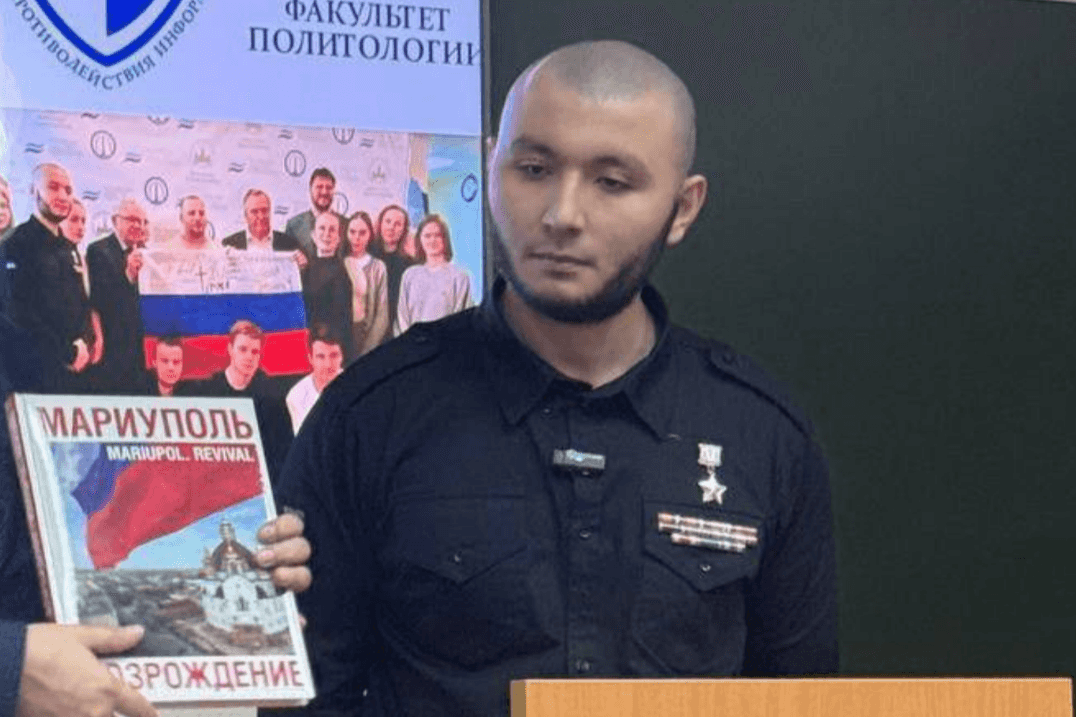
The commander of the Chechen wing of the Caucasus Emirate, Emir Hamzat, has been killed by security forces in the Russian Republic of Chechnya.
Hamzat, whose real name is Aslan Byutukayev, was the leader of the Chechen segment of the Caucasus Emirate, a movement to establish an independent Islamic emirate in the North Caucasus. Following the Emirate’s demise in 2015, he swore allegiance to the Islamic State.
Byutukayev was considered the ‘last emir’ (commander) of the Chechen armed resistance to the Russian rule after most of his peers were killed by security forces. However, experts say it’s too early to talk of an end to the armed conflict in the North Caucasus.
Byutukayev was killed together with five other men on 20 January near the village of Katyr-Yurt in the west of Chechnya. The authorities identified the other men as Isa Bazurkayev, Vakhit Darshayev, Rashid Moldayev, and Shamkhan Saraliyev. Another man who, the authorities say blew himself up, has not been named.
There is no official information about casualties among the security forces. According to media reports, five security officials were hospitalised with various wounds.
Russian authorities have blamed Byutukayev for the 2011 bombing of Moscow’s Domodedovo Airport, which claimed the lives of 37 civilians, and the December 2014 attack on the Press House in Grozny, in which 25 people were killed on both sides, as well as one civilian.
‘No more bandit underground in Chechnya’
The head of Chechnya, Ramzan Kadyrov, said that the killed men were ‘the last on the federal wanted list for terrorist activities on the territory of the Chechen Republic’.
Chechen state TV channel Grozny published the first footage from the Katyr-Yurt shootout before the operation was even finished. The footage showed Zamid Chalayev, one of Kadyrov’s top commanders whose unit has become infamous for torture and arbitrary detentions, shooting towards the dugout. Kadyrov visited the security forces on the scene and announced that he had personally notified Russian President Vladimir Putin of the successful security operation.
Kadyrov said that there was ‘no more bandit underground in Chechnya’. He added that there were ‘militants’ who left Chechnya and are in the Middle East.
Akhmed Zakayev, the leader of the Chechen Republic of Ichkeria in exile, expressed his condolences over the death of Byutukayev and his men. He compared the killing of Byutukayev with the 1976 murder of Khasukha Magomadov, known as Chechnya’s last abrek (member of North Caucasian resistance to the Soviet rule) by the NKVD.
Zakayev announced the six men would be posthumously awarded Ichkeria’s orders.
In response, Kadyrov uploaded a long rant full of insults and threats towards Zakayev and his family. He challenged Zakayev to come to Chechnya and take Byutukayev’s place and threatened to ‘throw him into the basement’ or ‘kill him with a shot in the head’.
Kadyrov also accused Zakayev of supporting the Islamic State. In the same video message, he said that he was appealing ‘to the UN and OSCE to extradite Zakayev’.
Kadyrov added that he was responsible for everything that happens in Chechnya and that he wanted to ‘kill as many Wahhabists as possible’. ‘Wahhabist’, originally a derogatory term for the followers of the Salafi movement, is synonymous with the word ‘terrorist’ in the language of the authorities.
‘I am fully responsible and my whole family is. I told my children and my whole family to learn how to use weapons’.
‘Waiting for the right moment’
Despite Kadyrov’s statements, it’s premature to talk about the end of the armed conflict in Chechnya, Chechen social activist Ruslan Kutayev and Russian political analyst Aleksey Malashenko told OC Media.
According to Kutayev, the armed struggle in Chechnya may flare up with renewed vigour in the event of political change in Russia. In his opinion, the situation in Chechnya following the killing of Aslan Byutukayev may remain relatively stable for some time due to the ‘enormous control’ that the authorities practice in the republic.
However, according to Kutayev, ‘a new generation full of discontent towards the authorities’ is growing side by side with those who ‘wait for a better moment for taking action’.
‘It seems to me that now there are no organised armed groups in Chechnya that are fighting against the current regime. But this does not mean that there is no dissent or those who are willing to fight. People who have such desires are well aware that any of their initiatives can end in disaster for them. Therefore, the discontented are waiting for the right moment’, Kutayev told OC Media.
Aleksey Malashenko, a political analyst and a researcher at the Carnegie Moscow Centre, told OC Media that the killing of Byutukayev’s group may be a success for the security forces, but it is too early to talk about the end of armed resistance.
‘Maybe there will be a hiatus now, but after a while, a new armed opposition will appear in the form of completely new young people. Resistance in the Caucasus, as well as throughout the Muslim world, is only getting younger. Old soldiers are being replaced by new ones, and this phenomenon will continue in Chechnya’, Malashenko said.
According to Malashenko, Kadyrov’s statement about the complete defeat of the ‘bandit underground’ speaks of his desire to report his successes to Putin. Kadyrov has often referred to himself as ‘Putin’s foot soldier’.
‘I understand Ramzan in his desire to report on his successes to Putin, but in Chechnya there are many people who simply hate him [Kadyrov] and who are greatly offended by the lawlessness he unleashes on those who disagree with him. In fact, he has broken the structure of Chechen society, which was always based on compromises and agreements. Now there is Kadyrov’s totalitarian government, which everyone is afraid of’, Malashenko said.
Malashenko said that in Chechnya, as in other republics of the North Caucasus, there is a high level of social discontent, which he said could take the form of armed religiously motivated protest.
A leader of Chechen militants
Little is known about Aslan Byutukayev’s past. The 46-year-old took part in the Second Chechen War and in the war’s final years rapidly climbed up the ranks of the Chechen resistance to the Russian rule. He was known among the militants as Hamzat or Abubakar.
In 2007, seven years after Russia regained control over Chechnya from the breakaway Chechen Republic of Ichkeria, the then-leader of the Chechen resistance, Dokka Umarov abolished Ichkeria. In its place, he announced the creation of the Caucasus Emirate, which attempted to unite the entire North Caucasus in the fight against the Russian government. The new structure was influenced by Islamic fundamentalism, replacing the secular nationalism of the first years of Ichkeria.
In 2011, Umarov declared Byutukayev his deputy in western Chechnya. After Umarov’s assassination in 2013, Byutukayev replaced him as the leader of the Chechen militants.
In the same year, Byutukayev and several other Chechen commanders pledged allegiance to the new leader of the Caucasus Emirate, Ali Abu Muhammad, or Aliaskhab Kebekov.
In 2015, following Kebekov’s death and the demise of the Caucasus Emirate, Byutukayev pledged his allegiance to the leader of the Islamic State, Abu-Bakr al-Baghdadi.
In 2016, the United States included Byutukayev in its list of ‘Specially Designated Global Terrorists’. He was wanted by the Russian authorities on charges of terrorism.








